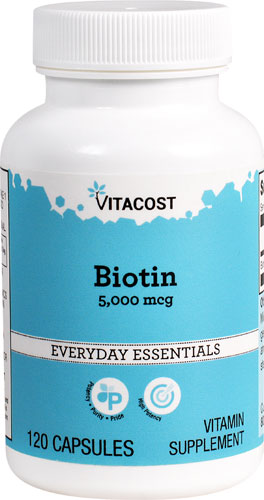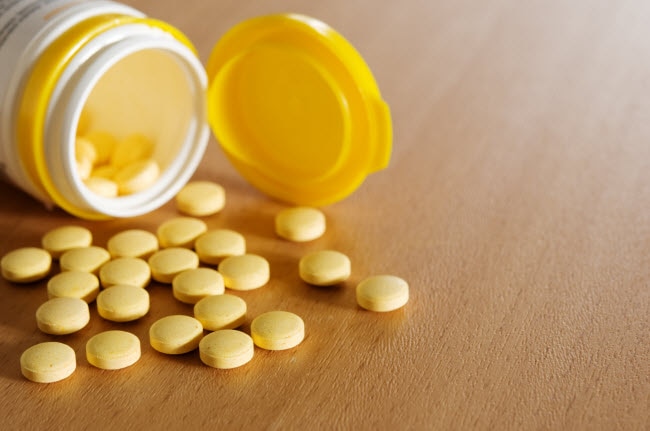If you’ve heard of biotin at all, an underestimated member of the B vitamin family, odds are it’s been in regard to improving your nail, hair or skin health. But don’t relegate biotin to the beauty bin—it can provide a significant boost to your overall health and wellbeing.
What is biotin?
It’s surprising that biotin, a water-soluble member of the vitamin B family—doesn’t get more credit. Biotin (Vitamin B7) produces enzymes that trigger many bodily functions. Biotin promotes healthy hair and nails and helps the body use carbohydrates, fats and protein. Originally used for hoof problems in animals, biotin’s success with hooves led researchers to explore if biotin would be successful with human nails as well. Several small studies done over two decades ago show that biotin can make thin brittle nails thicker.†
Where does biotin come from?
Foods that contain the most biotin include organ meats, milk, eggs, fish, meat, seeds, nuts, sweet potatoes and cereals. The biotin content of food can vary according to the season and the processing technique, which can reduce the biotin content of foods. Diets heavy in processed foods, particularly canned foods, may benefit from being supplemented with biotin.†
What do biotin supplements do?
Biotin benefits include helping the body to metabolize carbohydrates, fats and proteins and synthesize fatty acids. Biotin also helps produce an enzyme that forms a protective sheath around our nerves. It’s best known for making fingernails and hair stronger and is often found in hair and skin-care supplement products.†
Some early research shows that taking biotin along with chromium might support healthy blood sugar in people with diabetes. It may also help with nerves and muscle cramps in people who have diabetes or who are undergoing dialysis for kidney disease. More research is currently investigating whether biotin might be beneficial for those living with MS.†
What are signs of biotin deficiency?
While extreme deficiency is relatively rare, low blood levels of biotin can cause hair thinning and a scaly rash around the eyes, nose, mouth and genitals. It can also present as cracking at the corners of the mouth. symptoms of a more severe deficiency include depression, lack of interest, hallucinations and tingling in the arms and legs.
Who is most at risk of biotin deficiency?
Because pregnancy increases the metabolism of biotin, many pregnant women can become marginally biotin deficient. Other people at risk are those who have had long-term tube feeding, who are malnourished, who have undergone rapid weight loss. Some babies are born with a biotinidase deficiency, a genetic condition that prevents the body from utilizing biotin and requires lifelong supplementation.
What’s the best way to take biotin?
For pregnant women, a prenatal vitamin that contains 30 mcg a day should be taken during pregnancy and 35 mcg while breastfeeding. For men and women, a dose of 30 mcg is sufficient and does not show any adverse effects.
Any biotin side effects?
Biotin’s water solubility means that excess amounts of biotin are excreted daily through urine and feces, so it’s almost impossible to take too much. However, even in small amounts, biotin can mess with lab test results. The FDA recently released a statement that “biotin may interfere with some laboratory testing, causing results of tests to be either falsely high or falsely low. These inaccurate test results can cause healthcare practitioners to misdiagnose and mistreat their patients.”
This is especially true if you’re testing for issues such as thyroid or hormone levels, or cardiac troponin levels (used to diagnose heart attacks). As a precaution, your doctor might recommend you stop taking the biotin supplement a few days before you have your lab tests done.
†These statements have not been approved by the Food and Drug Administration. These products are not intended to diagnose, treat, cure or prevent disease.




